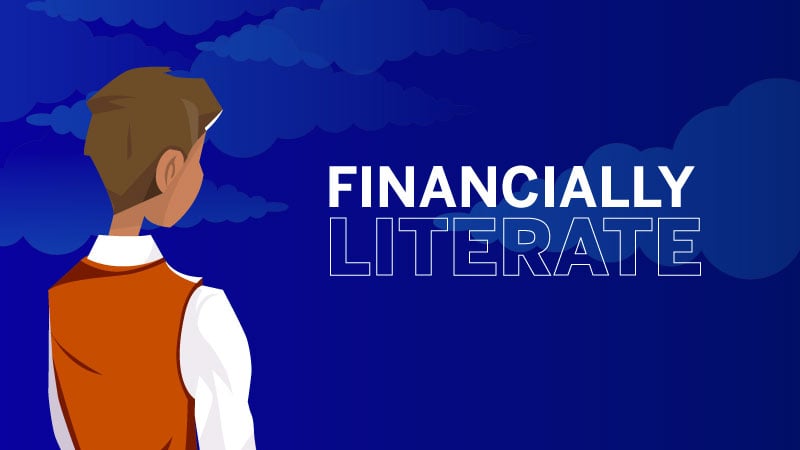
Understanding the importance of financial literacy
Your financial health is the cornerstone of accomplishing your goals, and to navigate the financial landscape it’s important to be financially literate. Whether it’s spending money on a day-to-day basis or saving for the long-term, getting to your goals involves understanding your money and what it can do.
The better you understand all aspects of money, including your income, debt, credit and expenses, and how they influence each other, the better financial decisions you’ll be able to make. WalletWise is our financial education initiative that helps you develop your financial knowledge so that you can make the right money decisions that lead to the right financial outcomes.
What is financial literacy?
Financial literacy means understanding financial concepts and having the skills associated with money management that enable you to make smart decisions with your money. It’s integral to making responsible financial decisions and will influence whether you control your money or your money is in control of your life. It gives you the confidence to manage your money wisely, be less trapped by debt, grow your money for both long- and short-term goals and set yourself up for retirement.
The importance of financial literacy
Given the importance of financial management, the increasing complexity of our financial and social environments, the lack of sufficient government aid and that your financial health directly impacts other areas of your life, it’s never been more important to be financially literate.
A lack of financial literacy could lead to more unsustainable debt burdens, poor credit, money loss and higher risks of being a victim of fraud, damaging your long-term financial success and impacting your ability to live life on your terms.
How to improve your financial literacy skills
There are many skills that contribute to financial literacy, and the ability to master them determines how informed and appropriate your financial decisions are.
It includes learning and using a variety of skills, such as:
- Understanding how to budget
- How to manage your money and pay off debts
- Having a good understanding of tax and how it affects your finances
- Knowing the basics of credit and investment products and how to use them
- Contributing to an emergency fund and planning for retirement
The good news is that there’s a lot you can do to improve your financial literacy, and you can start at any time. Here are four practical steps to get you started.
1. Create a budget
Identify how much you earn after tax and what your primary expenses are, and track how much you’re spending on non-essentials. This will give you an indication of where your money is going, what you can cut down on and how you can better allocate money towards savings, an emergency fund and retirement. Here are some pointers on how to create a budget.
2. Find the right financial help
A professional advisor can help you organise your finances, educate you on financial topics and products, and give guidance on how to reach your goals by creating a financial plan that suits your needs and outlines the solutions to help you achieve your goals.
3. Check your credit score
Your credit score determines the success of your loan application, as well as the interest rate you’ll receive. If you know what your credit status is, you know what you can do to improve it so that you can have access to better credit to further your dreams. See our tips on a healthy credit score.
4. Get some financial tools
Don’t wait for your bank statement at the end of the month; stay on top of your money every day. Download the Standard Bank App so that you have a full view of your money and can track your spending, stay within budget and start saving and investing.

